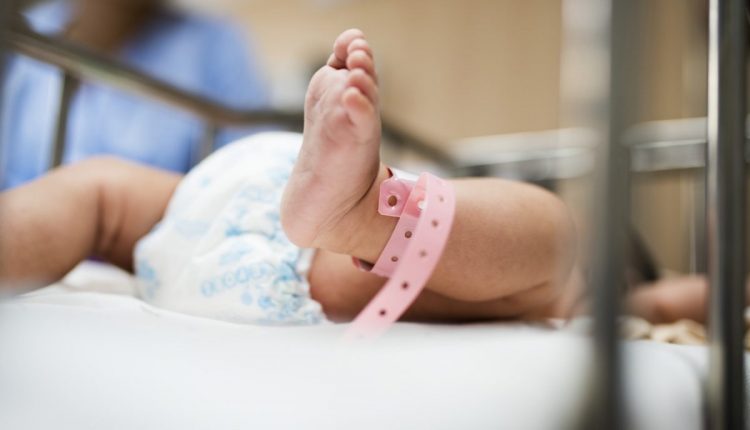
Italian Society for Neonatology: 'Premature births to positive mothers on the increase'
Data from the Covid-19 Registry of the Italian Society of Neonatology (Sin), as already noted in 2020, confirm an increase in premature births to infected women of 11.2%, compared to the prematurity rate of uninfected women of 6.9%
“A non-pregnant 30-year-old who contracts the virus has a low probability of being admitted to intensive care, but if she is pregnant the risk rises threefold.
The SARS-CoV-2 virus can also be transmitted, albeit rarely, from mother to foetus and sometimes causes severe neonatal Covid-19.
We recommend that pregnant women and women who want to have a baby get vaccinated to protect themselves and their babies.
This was stated by Fabio Mosca, president of the Sin, who, on the occasion of the XXVII National Congress, taking place in Rome until 9 October, presented the updated data of the Covid-19 Register and reiterated the importance of vaccination against Covid in pregnancy, to protect the mother and the unborn child.
Neonatology, data on newborn babies returned to hospital for infection diagnosed after birth admission
As of 30 June 2021, according to a note, 3,147 records have been entered relating to an equal number of newborns meeting the criteria for inclusion in the Register, of which 3,091 were admitted at birth and 56 related to newborns who returned to hospital for infection diagnosed after admission at birth.
Most of the cards were inserted by the centres in the North, which were hardest hit by the pandemic and, in particular, by the Lombardy Region (37.1% of the cards inserted), followed by Emilia-Romagna (11.4% of the cards inserted) and Piedmont (9.5% of the cards inserted).
Overall, birth centres in the North inserted 70% of the cards, while those in the Centre and the South both inserted 15% of the cards.
84.5% of the newborns (2,611/3,091) were born to women with an infection at the time of delivery, the remaining 15.5% (480/3,091) to women with a previous infection during pregnancy.
In 85% of cases, the pregnancy infection passed without symptoms; when present, the symptoms were mild to moderate, requiring invasive ventilatory assistance (with tracheal intubation) in 12 cases and non-invasive ventilatory assistance (with nasal cannulae) in 11 cases.
If we consider the population of those born to infected mothers at the time of delivery, most of them, 65.3%, were born by vaginal delivery, 18.7% by elective caesarean section and only 16% by emergency caesarean section, sometimes for maternal reasons, often related to the SARS-CoV-2 infection, and sometimes for fetal reasons.
In 88.8% of cases, the newborns were born at term, i.e. with a gestational age of 37 weeks.
CHILD HEALTH: LEARN MORE ABOUT MEDICHILD BY VISITING THE BOOTH AT EMERGENCY EXPO
The Italian Society of Neonatology: percentage premature in Covid-19 is higher than usual
Therefore, the percentage of premature births, 11.2%, is higher than that reported in the literature before the pandemic event, as reported by several studies, in even higher percentages, in women with Covid-19.
In 10.9% of cases, the newborns were low birth weight infants, i.e. weighing less than 2500 g.
More than half of those born to positive mothers at delivery or in the immediate postpartum, 64.6%, were isolated with their mothers (rooming-in), 20.6% were isolated in the ICU, 7.8% were isolated in the nursery, 1.8% were isolated with their mothers and subsequently separated and 5.2% were transferred to another centre.
74.5% of the newborns were fed exclusively with maternal milk (64.1% at the breast and 10.4% with squeezed maternal milk).
Almost all (98.7%) of the infants born to mothers with an infection at the time of delivery underwent a nasopharyngeal swab at birth: 1.6% of them were positive at the swab performed within 48 hours of life, and the remaining 2.6% only at a second swab performed later during the hospitalisation of the birth.
In the positive infants within 48 hours of life, intrauterine transmission of the infection is likely to have occurred, while in the others, horizontal transmission from mother to infant cannot be excluded, probably partly caused by failure to scrupulously adhere to precautionary measures for transmission through droplets (surgical mask, careful hand washing, separation of the infant’s cot from the mother’s bed in the case of joint isolation, i.e. rooming-in).
In the majority of cases, in agreement with the average reported in the literature, the infection in newborns was asymptomatic (in 77.9% of cases) or paucisymptomatic.
Poor adherence to precautionary measures was probably also responsible for the acquisition of infection by 2.2% of infants who were negative at discharge and positive during follow-up.
Even those infants who returned to hospital for SARS-CoV-2 infection acquired at home, although they were all symptomatic (prevailing symptoms: fever in 44.8% of cases and difficulty in feeding in 24.1% of cases), presented mild to moderate symptoms, requiring invasive ventilatory support in only two cases and non-invasive ventilatory support in two other cases.
None of them died of the infection and the hospital stay was relatively short (median 5 days, maximum 9 days).
The analysis of the president of the Italian Society of Neonatology
“We have created the Covid-19 Register in order not to disperse the wealth of knowledge gained by neonatologists during the SARS-CoV-2 pandemic,” concludes President Mosca.
This up-to-date data, relating to the care of babies born to Covid-positive mothers diagnosed at any time during pregnancy and of infants with acquired infection within the first month of life, is a valuable tool for operators in the sector, but also for institutions, from a scientific, clinical and social point of view.
Thanks to the knowledge acquired, we have been able to guarantee the mother-baby dyad, even during health emergencies, safety and quality of care, supporting ‘Zero Separation’ and encouraging rooming-in and the start of breastfeeding’.
Read Also:
Head Trauma In Children: How The Ordinary Citizen Should Intervene While Waiting For The Rescuers


